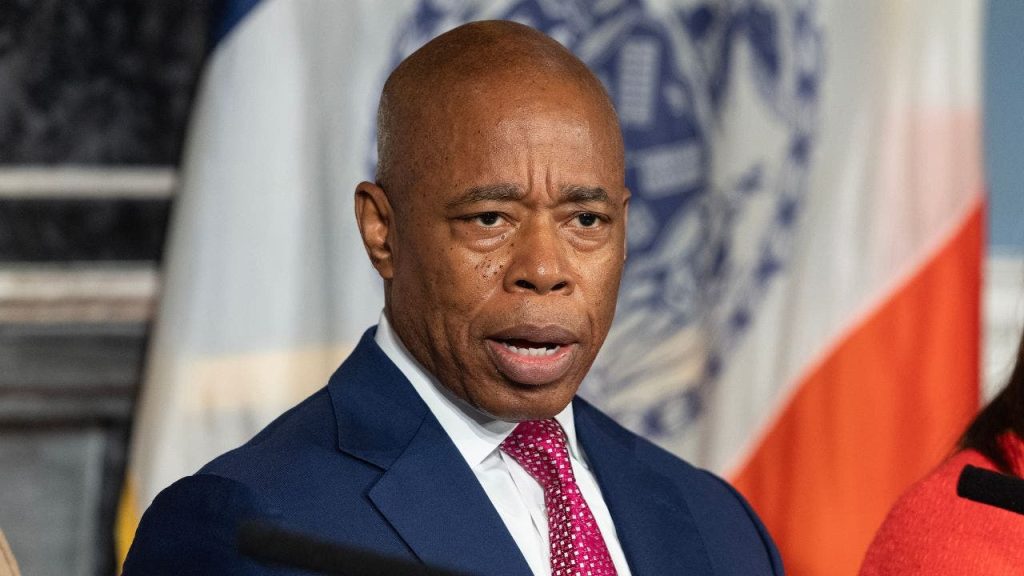New York City Mayor Eric Adams recently unveiled a new program that will give prepaid debit cards to migrants in the city, sparking controversy and concern from some city council members like Vickie Paladino. The $53 million program aims to provide migrants with funds for items such as food and baby supplies. However, critics argue that the program could incentivize more people to settle in the city, despite Adams’ previous claims that the city is already too full to accommodate more migrants.
The prepaid debit cards will provide a weekly allowance to migrant families, with a maximum amount of $350 per week for a family with two parents and children under five. The pilot program will initially target around 460 of the over 64,000 migrants currently in the city. Critics like Paladino believe that the city’s resources are already stretched thin and that the influx of migrants has led to a rise in crime that is negatively impacting residents in various neighborhoods.
Despite concerns raised by council members and residents, Mayor Adams has defended the program as a way to better serve both new arrivals and long-term residents experiencing homelessness. The mayor’s office views the debit card program as a potential cost-saving measure, estimating that it will reduce the monthly cost of providing food to migrants in the city. However, critics like Joseph Borelli argue that the program is unfair to working-class New Yorkers who do not receive similar benefits and are facing increased expenses in other areas such as congestion pricing.
Paladino and other critics question the fairness and necessity of providing illegal migrants with free services funded by taxpayers. They believe that the program could lead to unforeseen consequences such as creating a black market or negative incentives for migrants. While the program aims to address the immediate needs of migrants, critics argue that it fails to address the larger issues of illegal immigration and the strain it places on city resources and communities.
Paladino suggests that instead of providing financial assistance to migrants, the city should focus on deporting individuals who are in the country illegally. She criticizes the lack of transparency and accountability in the implementation of the program and questions the logic of providing millions of taxpayer dollars for food to individuals who have found ways to survive without such aid in the past. The debate over the prepaid debit card program highlights broader tensions around immigration policy, resource allocation, and social services in a city facing challenges related to population growth and economic disparities.
Despite the criticism and concerns raised by council members and residents, Mayor Adams has not backed down from defending the program. The administration maintains that it is working to find innovative ways to support both new arrivals and longtime New Yorkers in need, emphasizing the potential benefits of the program in terms of cost savings and efficiency in providing essential services to vulnerable populations. However, the controversy surrounding the prepaid debit card initiative underscores the complex and contentious nature of immigration policy and social welfare programs in a city as diverse and dynamic as New York.


